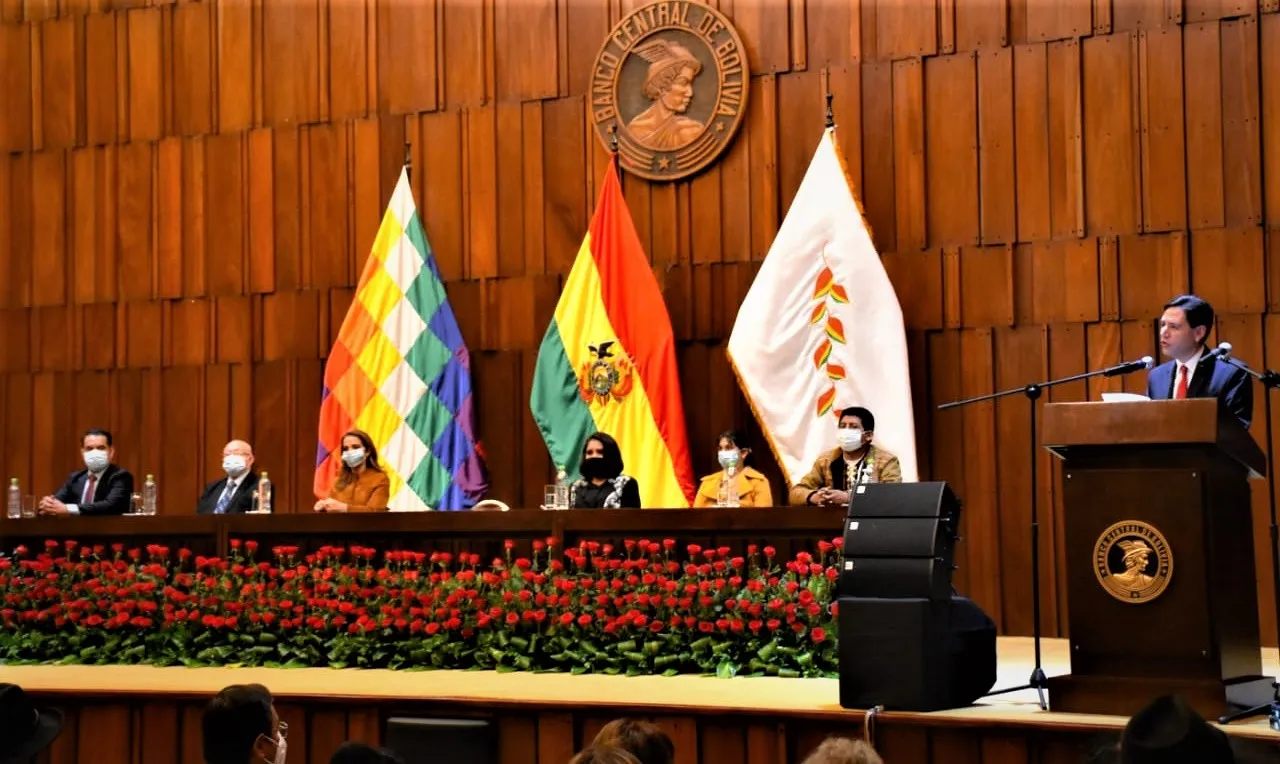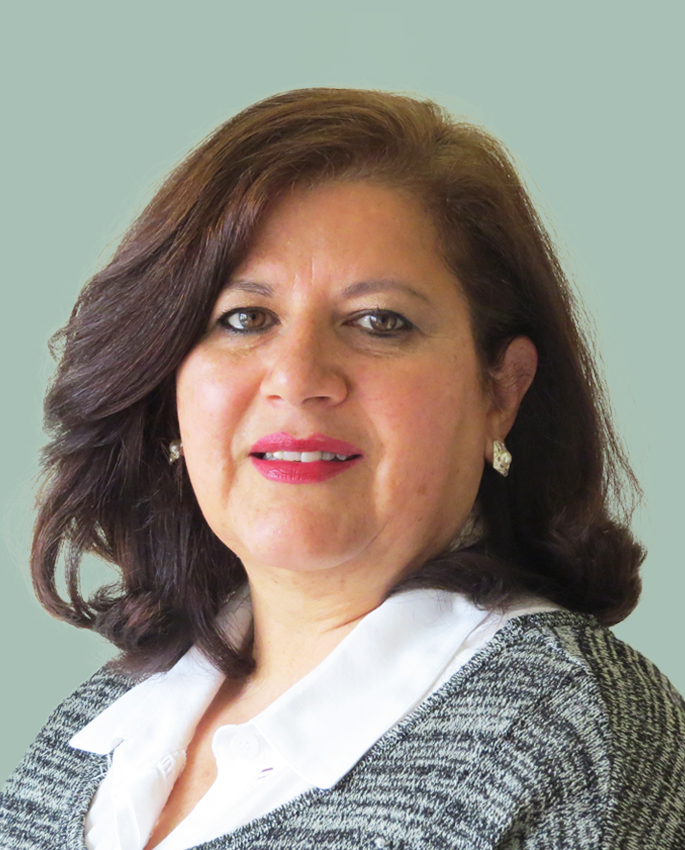The Plurinational Electoral Body praised the support provided by International IDEA and citizens’ observation missions

In his final appraisal of the comprehensive evolution of the 2020 general election, Dr Salvador Romero, Chair of the Supreme Electoral Tribunal (TSE), praised the support of international organizations from International IDEA and other national electoral observation missions engaged in the strengthening of democracy, describing the election as "the most complex in the country's democratic history".
Este artículo está disponible en español.
Dr Romero's pronouncement was delivered during the ceremony in which Luis Arce and David Choquehuanca were presented their credentials as president-elect and vice president-elect of Bolivia, respectively, on 28 October 2020. The event was held in the Auditorium of Bolivia’s Central Bank, and among the guests in attendance were International IDEA’s Senior Adviser and Programme Officer, Alfonso Ferrufino and Carolina Floru, respectively.
In his speech, Dr Romero, the highest ranking member of the Plurinational Electoral Body (OEP) looked back on the state of the electoral body when it began its work and the road travelled up to now, adding that: “The damage (to the OEP) far exceeded the destruction of buildings and computers—carried out by protestors who rejected the outcome of last year’s elections—as it affected the very heart of the institutional structure, which lay in a critical state. We began reconstruction, relying on the generosity of countries that have been friends of Bolivia, whereby funding was mainly channeled through the United Nations Development Programme (UNDP), International IDEA and the International Foundation for Electoral Systems (IFES), who provided technical assistance and a decisive boost in the modernization of technological equipment.”
Through various programmes, International IDEA in Bolivia is promoting the participation of civil society in the exercise of their democratic rights. With the financial support of the European Union (EU) and the Spanish Agency for International Development Cooperation (AECID), International IDEA has advanced the citizens’ electoral observation initiative, Observa Bolivia, made up of 16 civil society organizations (CSOs) with a presence in all nine of the country's autonomous regions.
On polling day, 18 October 2020, along with 2,032 volunteers from civil society, the 16 organizations put together a citizens’ electoral observation platform, marking a milestone in the development of electoral processes in Bolivia.
Its task was to examine, in a qualitative, comprehensive, impartial and independent manner, the quality of polling day itself based on a representative sample made up of 1,133 polling stations, distributed in rural (55 per cent) and urban (45 per cent) areas across the country.
"The election results have been accepted by the contenders, in a gesture that honors and exalts them; have been endorsed by the international community which itself deployed observation missions that gauged the election applying a yardstick of electoral integrity standards; have been accepted by local observation platforms and by society as a whole, in an act of democratic maturity, beyond the notion that the results may have pleased or disappointed them," Dr Romero noted.
Observa Bolivia is a unique initiative of its kind in the country, given the solid consolidated partnership among the 16 CSOs and the logistics implemented to allow the displacement of the thousands of observers.
The scope of Observa Bolivia's work is comprehensive. It began with monitoring and technical analysis of citizens registration in the electoral register, the registration of nominees, the broadcast of electoral advertising and the selection of electoral juries, among other related activities. The second phase involved polling day observation, and the third phase consisted of vote count observation, the publication of results and the application of electoral justice.
In compliance with regulations, the OEP was presented with a preliminary report on the tasks carried out on 18 October, polling day, and will be presented with a final report, including conclusions and recommendations. The preliminary report can be accessed through the following link: https://bit.ly/2ToQ4SZ.




